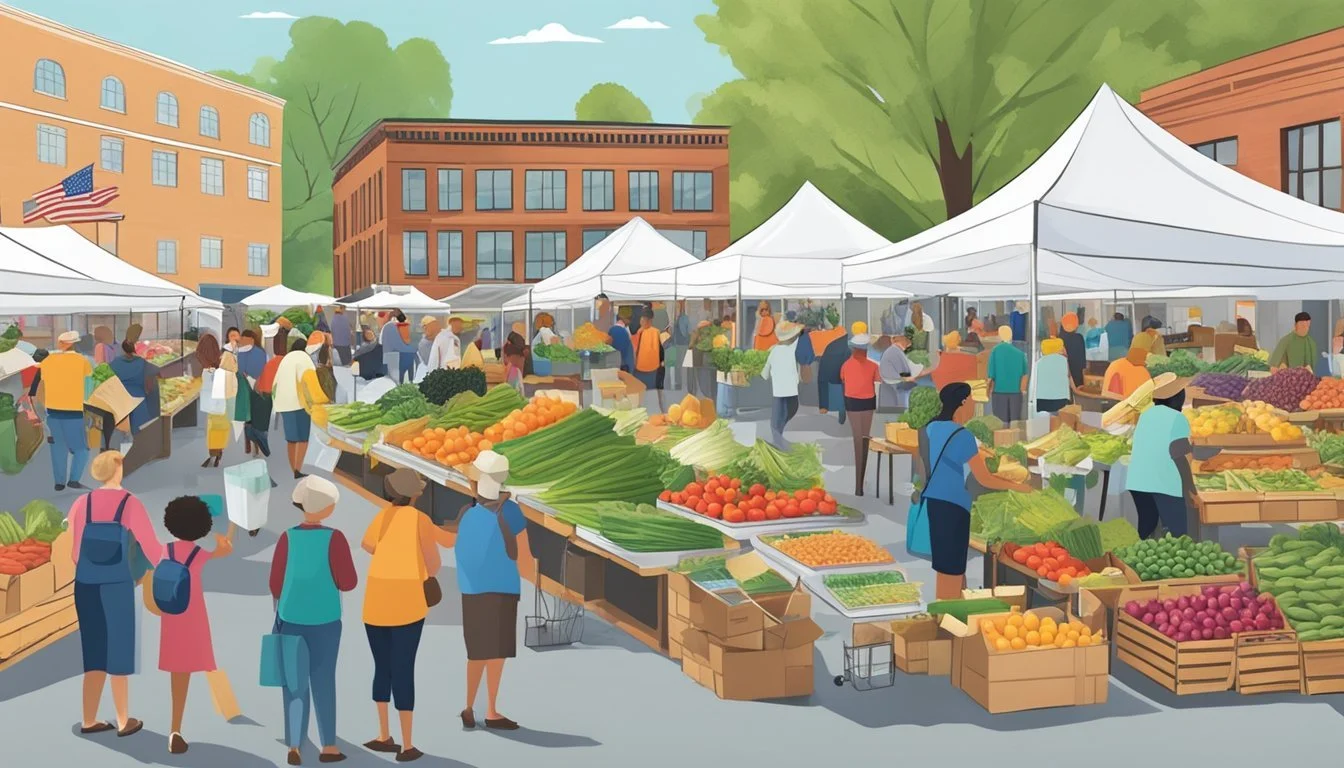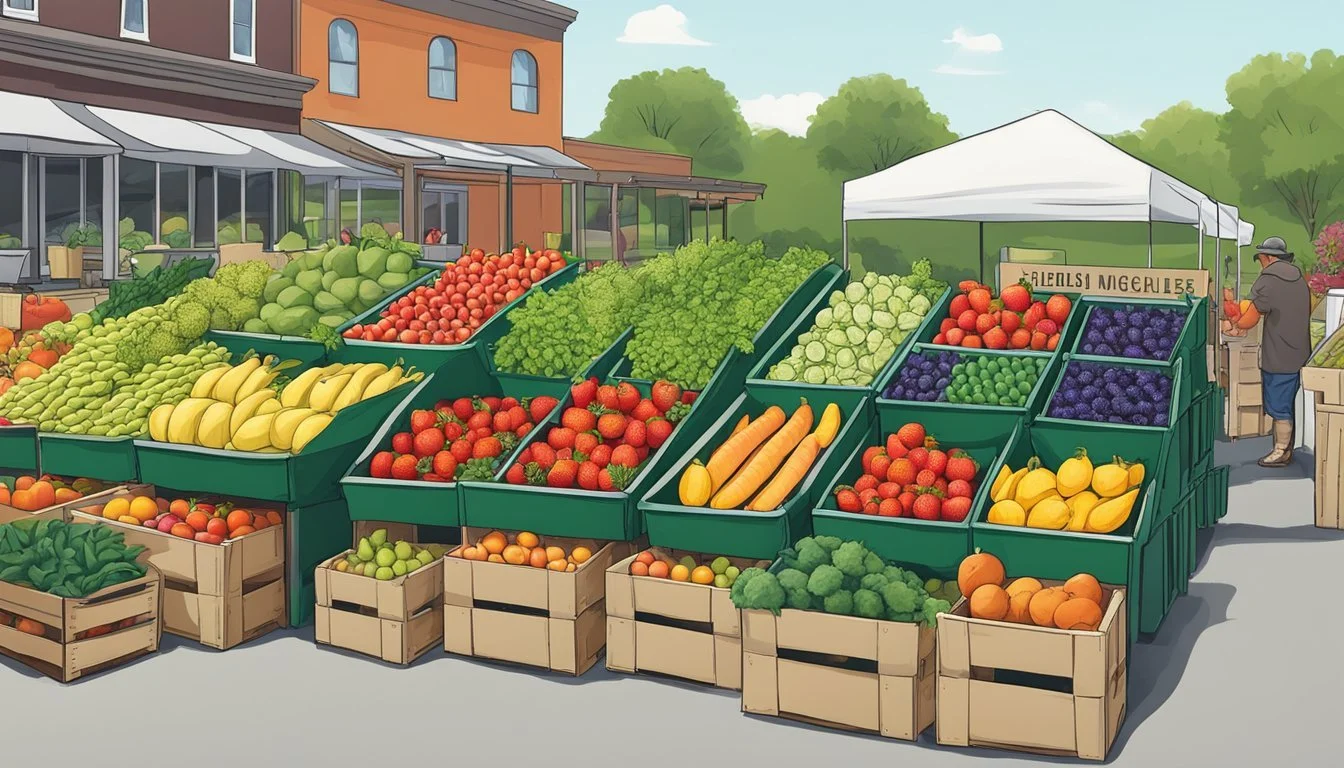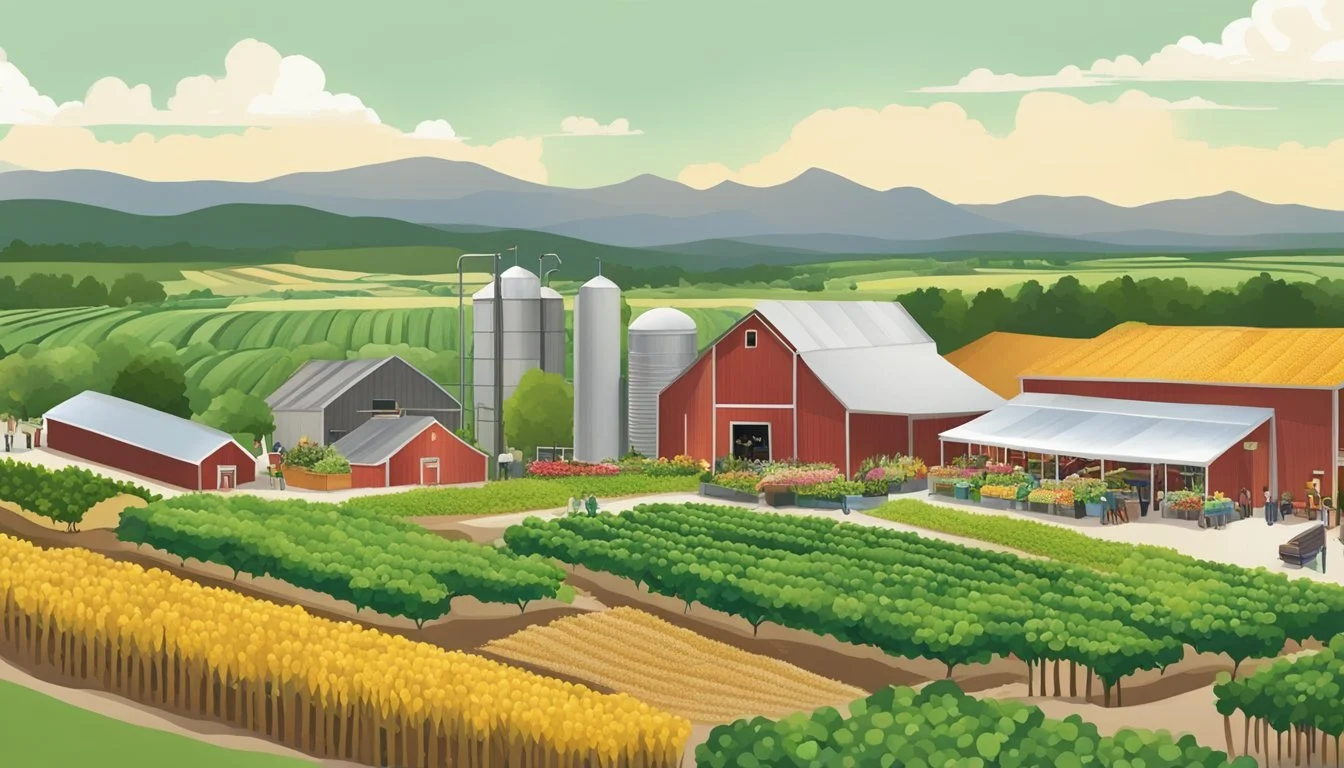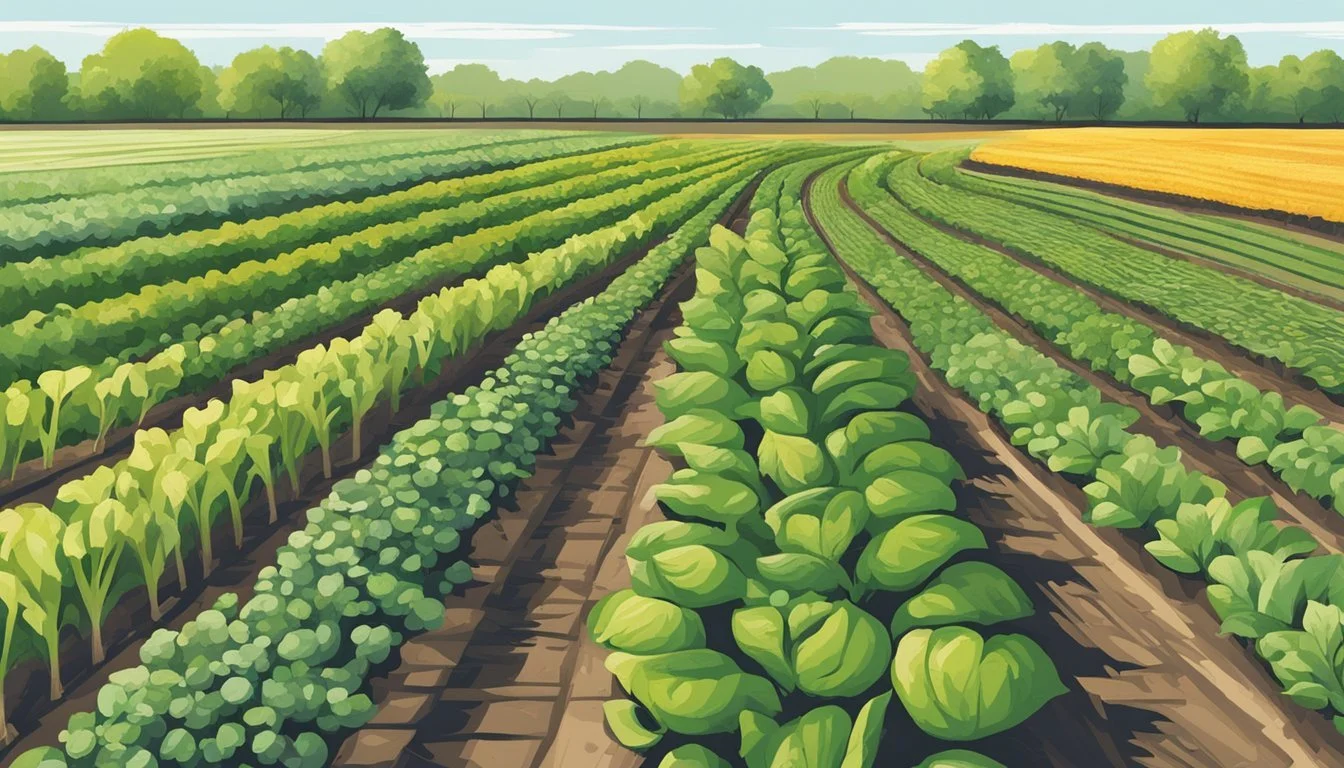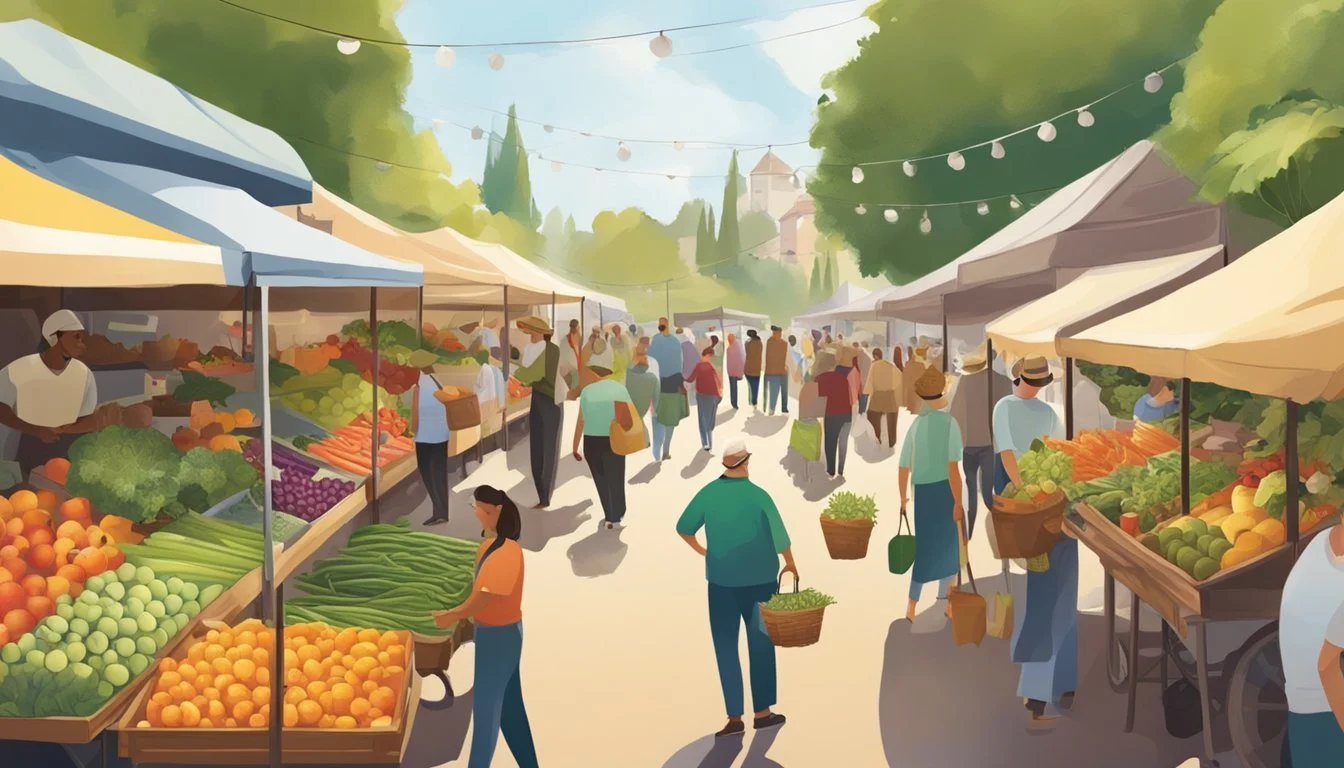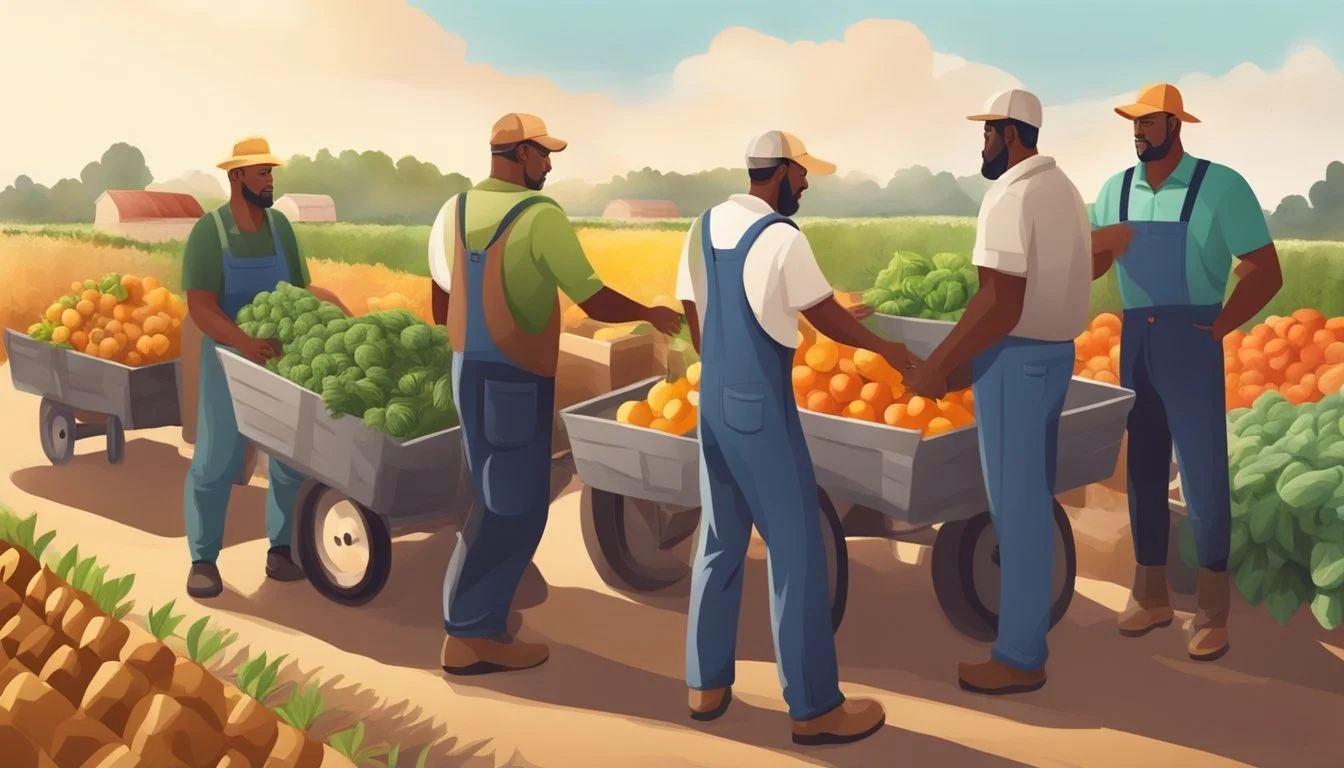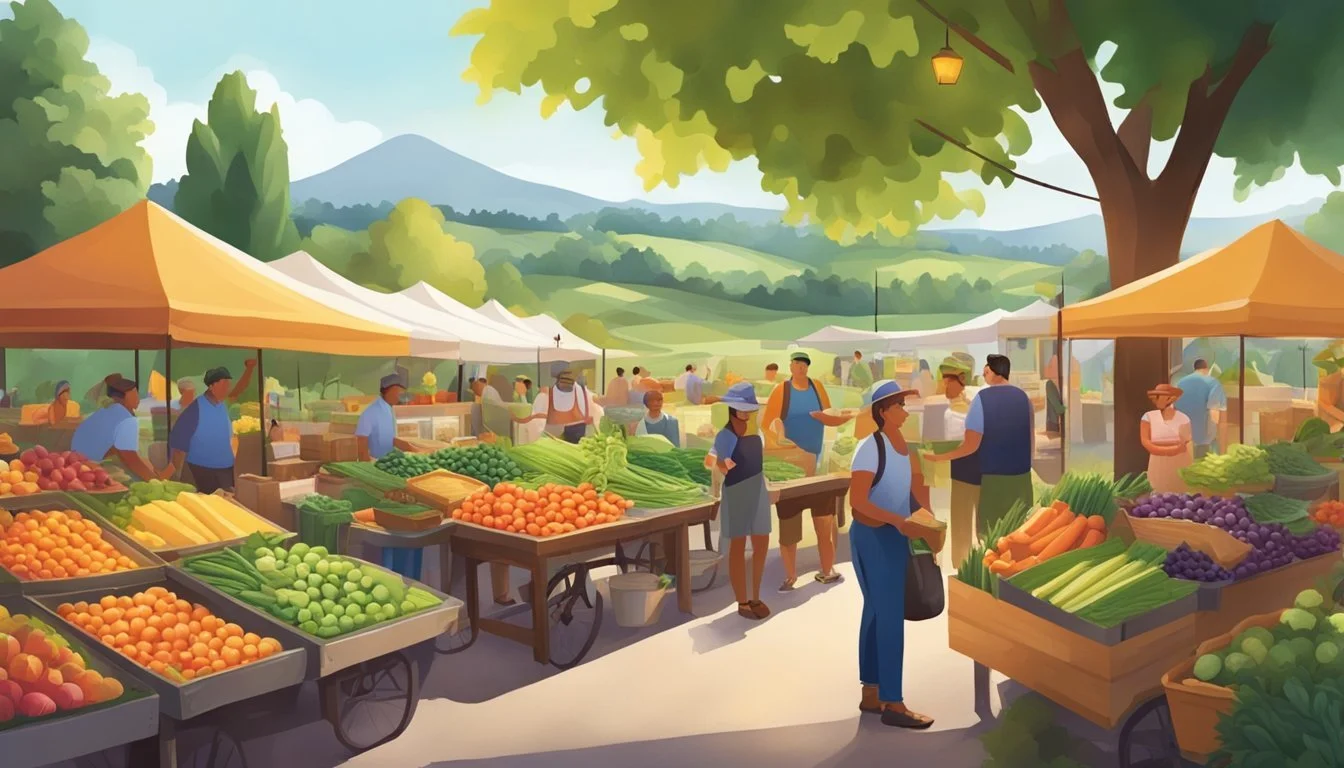Community Supported Agriculture (CSA) in Syracuse, NY
A Guide to Local Farm Shares
Community Supported Agriculture, commonly known as CSA, is a farming model that has taken root in areas across the United States, including Syracuse, NY. This model fosters a partnership between local farmers and community members, where individuals purchase shares of a farm's harvest in advance. In Syracuse, CSAs offer a way for residents to directly support local agriculture, ensuring that they receive a portion of the farm's crops throughout the growing season.
The CSA model benefits both farmers and consumers. For farmers, it provides a degree of financial security, as they receive payment upfront, which helps cover initial production costs. Consumers, on the other hand, enjoy the freshest produce, often organic and sustainably grown, straight from their local farms. Syracuse's CSA programs are diverse, serving a wide range of neighborhoods with pickup points located throughout the city and its surrounding areas.
Syracuse's CSA programs are known for their variety and commitment to organic and sustainable farming practices. Madison, NY, near Syracuse, is home to farms that offer CSA shares with convenient pick-up locations spread across Central New York. Residents have the flexibility to choose from multiple CSA farms like Common Thread Farm, Brady Farm, and Hartwood Farm, each providing unique offerings and pick-up schedules that cater to different lifestyles and preferences.
Understanding CSA
Community Supported Agriculture (CSA) in Syracuse, NY, leverages a symbiotic relationship between local farms and the community, providing mutual support and sustainability for both.
Definition of CSA
CSA refers to a system in which consumers purchase shares from a local farm before the growing season. In return, they receive periodic distributions of the farm's harvest, typically on a weekly basis. This model fosters a direct link between the production and consumption of food, ensuring support for local farming.
Historical Context
The CSA concept has evolved globally but found firm roots in the United States during the 1960s, spurred by the work of Booker T. Whatley, a proponent of "clientele membership clubs." Syracuse's CSA farms have become a continuation of this legacy, adapting the concept to suit local community needs and agricultural capacities.
CSA Benefits
For Community:
For Farms:
Provides upfront capital
Creates a guaranteed market
For Environment:
Promotes sustainable farming practices
Reduces carbon footprint through decreased food miles
CSA Risks
While CSAs have many benefits, they also entail risks. Shareholders must be prepared for:
Variability in produce selection
Potential impacts of adverse weather
Farms must navigate:
The complexity of crop planning
Managing customer expectations
Bolstered by strong community support and a commitment to local sustainability, CSAs in Syracuse are integral to the region's agricultural framework, demonstrating the power and potential of this collaborative model.
Starting with CSA in Syracuse, NY
Community Supported Agriculture is a thriving practice in Central New York, with Syracuse at its heart. Prospective members have options among various local farms offering shares of fresh produce. Knowing how to select a CSA program and what to expect can ease the transition into this sustainable choice.
Selecting a CSA Program
Individuals looking for a CSA in Syracuse, NY, should first explore available programs. Common Thread is a popular choice, operating near Colgate University and offering multiple pick-up sites including Clinton, Dewitt, Fayetteville, and others. One can also find local CSA details via resources like LocalHarvest or the Syracuse-Onondaga Food Systems Alliance which lists farms with CSA offerings and their pick-up locations.
Membership and Shares
CSA membership involves purchasing a share, which generally grants a weekly box of vegetables and sometimes fruits, depending on the farm’s production. Shares are often seasonal, with availability typically during the summer and fall months. Some farms may offer winter shares as well. Hartwood Farm, for instance, has been known to offer seasonal CSA memberships, though they announced a sabbatical for 2023.
Cost Considerations
The cost of a CSA share can vary based on the farm, the length of the subscription, and the variety of produce offered. Some CSAs provide sliding scale pricing or payment plans to ensure access for a broader community. Potential members should inquire with specific CSA programs about costs and payment schedules.
What to Expect
Members can anticipate a weekly or bi-weekly collection of fresh produce straight from local farms. This not only supports the regional agricultural economy but also promotes healthy eating habits through a diverse array of seasonal vegetables and fruits. CSA pick-ups can take place at the farm, local markets, or designated distribution sites across Syracuse and Central New York.
Local Farms and Farmers
Syracuse, NY is home to a number of dedicated farms and farmers, all integral parts of a robust Community Supported Agriculture network. These local farms offer fresh produce and other products to the community through various CSA programs.
Profiles of Syracuse CSA Farms
Common Thread Farm
Located near Madison, NY, just north of Colgate University, Common Thread serves several areas including Syracuse through its CSA program. They offer their members a variety of pick-up locations from Clinton to Utica.
Hartwood Farm
Emphasizing a selection of vegetables and eggs, Hartwood Farm provides for its CSA members in areas such as Fayetteville, Liverpool, and Manlius. Operated by farmers Maryellen and Matt Robinson, the farm is noted for its personal touch and community involvement.
Brady Farm
Situated on South Ave in Syracuse, NY, Brady Farm plays a significant role in the local CSA scene, promoting a mutually supportive relationship between the community and agriculture.
Meet Your Farmers
Farmers like Maryellen and Matt Robinson of Hartwood Farm represent the heart of local food production. Their hands-on approach ensures quality and sustainability, making a difference in the Syracuse area. Dedication to land and community is a common thread amongst these agriculturalists, as seen with the team at Brady Farm, who are deeply involved in their urban farm's operations.
Farming Practices
Local farms typically employ a range of practices to grow their crops. Organic farming methods are a cornerstone for many, where the use of synthetic fertilizers is avoided. Instead, they prioritize natural alternatives to nurture their land and produce. Small farms in the Syracuse area may also incorporate practices that protect the integrity of their hay fields and other cropland.
Community Engagement
Community engagement is at the core of Syracuse's local farms. By participating in CSA programs, members support these farms financially in early spring, when farming costs can be higher. This system fosters a closer connection between the people of Syracuse and the farmers who grow their food, with farms like Old Fly Farm in Fabius, NY, contributing to a sustainable model of local agriculture.
CSA Crop Varieties
Community Supported Agriculture in Syracuse, NY, offers a diverse array of crops, with each farm providing its unique variety based on the season.
Vegetables and Fruits Offered
Community Supported Agriculture (CSA) farms around Syracuse are known for a wide variety of vegetables and fruits. Patrons may find themselves delighted with an assortment of leafy greens such as kale and Swiss chard. Root vegetables like beets and potatoes are commonly cultivated due to their hardiness and popularity. The fruit selection, while seasonal, often includes berries, apples, and stone fruits.
Leafy greens: kale, Swiss chard
Root vegetables: beets, potatoes
Fruits: apples, berries, stone fruits
Meat and Other Produce
Several CSAs in the Syracuse area extend their offerings beyond produce to include meat. These include pasture-raised beef, pork, and poultry, which adhere to the farms' commitment to sustainable and ethical farming practices. Additionally, some farms might offer other products such as eggs and flowers, enhancing the variety of their shares throughout the growing season.
Meat: beef, pork, poultry
Other produce: eggs, flowers
Understanding Seasonal Availability
The CSA model is grounded in seasonal farming, which means that the availability of crops and produce changes throughout the year. For example, the bounty of spring might include tender lettuces and sweet snap peas, whereas the fall harvest brings robust squashes and crisp apples. CSA members typically receive a weekly or biweekly share of the farm's harvest, reflecting the current season's abundance and variety.
Sustainability and Community Impact
The CSA model in Syracuse, NY, significantly bolsters local agriculture while fostering a greener environment and tighter-knit communities. These ventures emphasize sustainability, support local food systems, and cultivate community engagement.
Economic Benefits for Local Farms
Community Supported Agriculture provides a steady income stream for local farms, allowing them to focus on quality and sustainable practices. Members of the CSA pre-purchase shares of the harvest, which furnishes farms with upfront capital. This financial support is crucial for the local economy as it helps to maintain the viability of small-scale agriculture in Central New York and ensures the continuation of farming traditions.
Direct Income: Pre-paid CSA membership fees provide immediate income to local farms.
Reduced Waste: With a known number of CSA members, farms can plan and produce more accurately, decreasing excess crops.
Environmental Stewardship
CSA farms around Syracuse adopt practices that are conscious of their environmental footprint. They aim to minimize chemical usage and reduce carbon emissions associated with long-distance transportation of produce. Local farms prioritize organic and non-GMO crops, responsible water usage, and soil health.
Organic Practices: Local CSA farms, such as Common Thread Community Farm, strive to use organic methods whenever possible.
Locally Grown Produce: Reduces the carbon footprint by shortening the distance food travels from farm to plate.
Social and Community Benefits
Community Supported Agriculture in Syracuse goes beyond just food production, shaping a stronger bond among community members and fostering an appreciation for locally sourced products. It promotes education about sustainable farming and creates opportunities for people to engage directly with their food sources.
Education and Awareness: Farms like Brady Farm offer educational programs alongside their CSA shares to enhance community knowledge about sustainable farming.
Community Engagement: Connections between local farms and residents are strengthened through CSA programs with initiatives such as workforce development and volunteer opportunities.
Challenges and Solutions
In Syracuse, NY, Community Supported Agriculture faces distinct challenges like unpredictable weather, customer expectation management, and distribution logistics. Solutions are being crafted to address these issues and maintain a sustainable CSA system.
Weather Impact on Crops
Challenge: The region's weather can be erratic, posing risks like frost, drought, or excessive rainfall, which drastically impacts crop yield and availability. Solution: Farmers implement crop diversification and season extension techniques, such as high-tunnel greenhouses, to mitigate weather-related losses.
Managing Customer Expectations
Challenge: Customers may have specific expectations for variety and continuity of produce that may not align with the seasonal and weather-dependent nature of farming. Solution: Regular communication through newsletters and educational events enlightens customers about seasonal eating and the realities of local agriculture.
Logistics of CSA Distributions
Challenge: Efficiently distributing CSA shares to members at a multitude of locations each week requires meticulous logistical planning. Solution: Streamlined distribution systems are developed, including centralized pick-up locations and cooperation with local businesses for share drop-offs, to improve the availability and convenience for CSA members.
Engagement and Communication
Effective engagement and communication within a CSA involve various strategies to ensure members are well-informed, connected, and actively participating.
Staying Informed as a CSA Member
Members of Community Supported Agriculture in Syracuse benefit greatly from frequent updates about the season's harvest, availability of produce, and any changes in pickup times or locations. Farms typically use email as a direct line of communication, ensuring that members have access to the latest information. Members can also reach out to CSA staff with questions, enhancing transparency and trust within the community.
Marketing and Social Media
CSAs employ marketing efforts to maintain and grow their member base as well as to keep existing members engaged. Utilizing social media platforms like Facebook and Instagram allows these farms to showcase their fresh produce, share stories from the fields, and spotlight members' experiences. This not only engages the existing community but also attracts potential members. Social media acts as a public partner, facilitating a wider reach for these local CSAs.
CSA Events and Activities
Engagement extends beyond the produce pickup as CSAs often host various events and activities designed to foster a sense of community. These can include:
On-Farm Events: Workshops or potlucks where families and groups are invited to partake in farm life.
Partner Activities: Collaborations with local businesses or other CSAs to host educational sessions or food tastings.
These gatherings are excellent opportunities for members to meet the staff, learn more about sustainable agriculture, and connect with other like-minded individuals.
Legal and Policy Considerations
When engaging with Community Supported Agriculture (CSA) programs, it is crucial for both consumers and farms in Syracuse, NY to be mindful of the legal frameworks and policies that govern their interactions. These include clear user agreements, privacy policies detailing information handling, and the nature of third-party partnerships.
User Agreements
User agreements are legally binding contracts that CSA members enter into upon joining a program. They must specify the commitments and expectations for both the farmer and the consumer. These agreements often outline the quantity of produce, delivery frequency, and payment terms. They also detail the actions in case of unforeseen events affecting the harvest, thereby sharing the risks associated with farming among the community and the producer.
Privacy Policies
The CSA's privacy policy should articulate how member personal information is collected, recorded, and stored. It needs to address the scope of data gathered, which may range from names and contact details to payment information. Privacy policies should also explain tracking of website interactions, such as page clicks and user navigation behavior, ensuring members' data confidentiality and compliance with applicable privacy regulations.
Third-Party Partnerships
CSAs may partner with third-party entities for various services, including website management, payment processing, and distribution logistics. Such partnerships should be clearly disclosed in CSA policies. The responsibilities of the third parties in regards to member information should be explicitly outlined, demonstrate adherence to privacy standards, and indicate any potential data shared between the CSA and these third parties.

